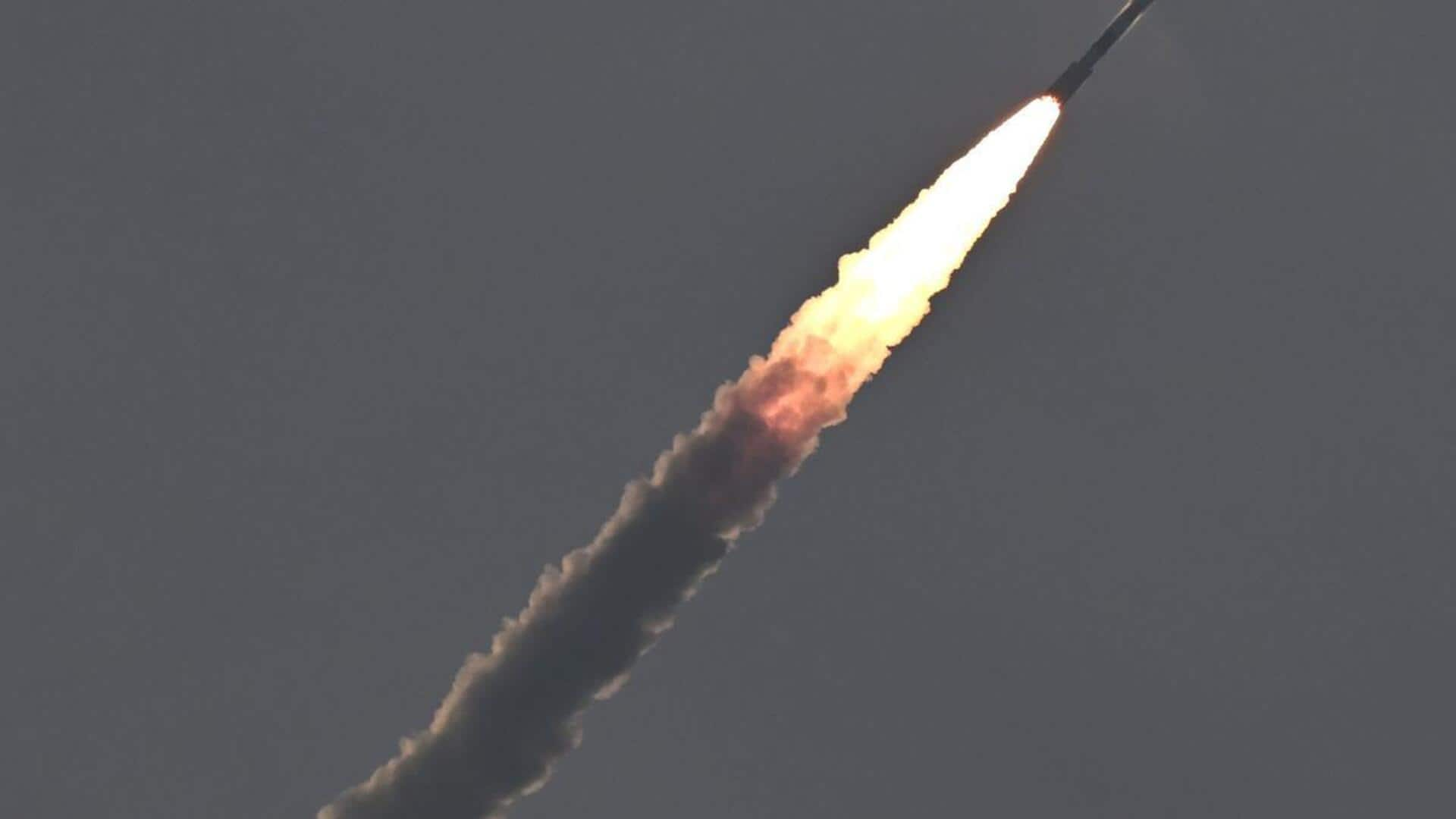
ISRO's PSLV-C61 mission fails to launch EOS-09 satellite
What's the story
The Indian Space Research Organisation (ISRO) faced a setback on Sunday as its Polar Satellite Launch Vehicle (PSLV-C61) failed to place the EOS-09 satellite into orbit. The mission launched from the Satish Dhawan Space Centre in Sriharikota but encountered an anomaly during flight. This was the 63rd flight of the PSLV series and 27th in its XL configuration, which is designed for heavier payloads.
Launch details
Technical issue leads to mission failure
The PSLV-C61 was supposed to launch the 1,696kg EOS-09 satellite into a sun-synchronous polar orbit. However, ISRO's chief V Narayanan confirmed on a livestream that there was a problem with the rocket's third stage. "The third stage motor started perfectly, but during the functioning of the third stage, we are seeing an observation, and the mission could not be accomplished," he said.
Twitter Post
ISRO's statement on X
Today 101st launch was attempted, PSLV-C61 performance was normal till 2nd stage. Due to an observation in 3rd stage, the mission could not be accomplished.
— ISRO (@isro) May 18, 2025
Historical context
Previous PSLV failures and their causes
This is the third failure of the PSLV missions. The first was on September 20, 1993, with PSLV-D1 due to a programming error and retro-rocket malfunction. The second failure was on August 31, 2017, with PSLV-C39 when the payload fairing failed to separate during launch. Despite these setbacks, ISRO's PSLV remains one of the most reliable launch vehicles globally.
Satellite importance
EOS-09 satellite's significance for India
The EOS-09 satellite was expected to enhance India's earth observation capabilities with its advanced radar imaging. It is equipped with Synthetic Aperture Radar (SAR) and would have supported agriculture, forestry, soil moisture estimation, and disaster management. The mission was a follow-up to EOS-04 and aimed at improving image acquisition frequency and data continuity for operational users.